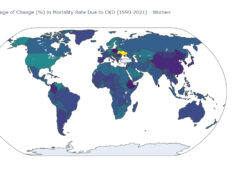
Chronic kidney disease (CKD) patients who are older or more vulnerable can achieve similar outcomes with their treatment, particularly on understanding of it and their condition, compared to those with less advanced disease through a combined “team-based approach” including “physicians, advanced practitioners, social workers, pharmacists and dieticians”. That is one conclusion of a recently-published study in Kidney Medicine.
Though multidisciplinary approaches to CKD may require “more resources and potentially increase costs”, says first author Surekha Annadanam (University of Michigan, Ann Arbor, USA) and colleagues, previous studies have suggested that they may have a beneficial effect on patient outcomes. For their study, Annadanam et al focused on patient-centred outcomes, which they define as “outcomes that are individualised to the patient and their experiences”. They point to reports such as the one led by Hannah Tiu (Henderson Hospital, Henderson, USA) in Clinical Nephrology that suggest patients with kidney disease do not usually understand their treatment, nor do they get the best possible communication to help them understand it. Both studies were led overall by Julie Wright Nunes (University of Michigan Department of Internal Medicine, Ann Arbor, USA) and her research team and funded through the US National Institutes of Health (NIH)-affiliated National Institute of Diabetes and Digestive and Kidney Diseases (NIDDK).
The authors designed a study with several patient-centred outcomes, including “CKD-specific knowledge, kidney disease-related stress, overall health, and health status compared to one year ago”. Knowledge, measured through the kidney disease knowledge survey (KiKS), was the primary outcome. They also adjusted for patient-specific factors that may influence any results suggesting a difference between multidisciplinary and general nephrology care.
In total, the study enrolled 245 patients with a mean age of 60 years. Of these, 168 (69%) received general nephrology care while 77 (31%) received multidisciplinary care. “Given the nature of the multidisciplinary care clinic,” the authors state, those in the latter group were on average older (64 years vs. 58 in the nephrology care group) and had more advanced CKD (66% with stage 4–5 vs. 36%).
The overall mean score for knowledge measured with KiKS was not significantly different between the multidisciplinary group and the general care group (66.7% and 67.0% respectively [p=0.89]). However, a greater percentage of those in the former group could correctly identify their own CKD stage versus those in the latter (48% vs. 34%).
The study authors note that patients seen in the multidisciplinary clinics specifically saw older patients with more advanced CKD. They argue that, given there is “a trend for older age… to be associated with lower knowledge” (-0.1, p=0.06), it is notable that this is levelled out after patients received multidisciplinary care—suggesting it helps older patients to match their younger counterparts in knowledge of their disease. The study also found levels of disease-specific stress varied not only across level of progression but also along lines of race, with African American patients found to have a higher level of stress (0.4 confidence interval, p<0.01) compared to white patients.
Though multidisciplinary care was not found in this study to make significant improvements to stress level or knowledge generally, it can achieve outcomes on these metrics for more vulnerable patients that are comparable to those with less advanced CKD. “Focused, repetitive education”, they state, “may result in sustainable differences in specific areas of knowledge related to individual patients.”
Noting several limitations to the study, the authors acknowledge its basis as a cross-sectional study based on surveys, which they say can only “determine associations and cannot infer causality”. They posit nevertheless that their results demonstrate “a need to drive education interventions further that are tailored for each individual patient”, accounting for their specific level of disease and individualised needs.












